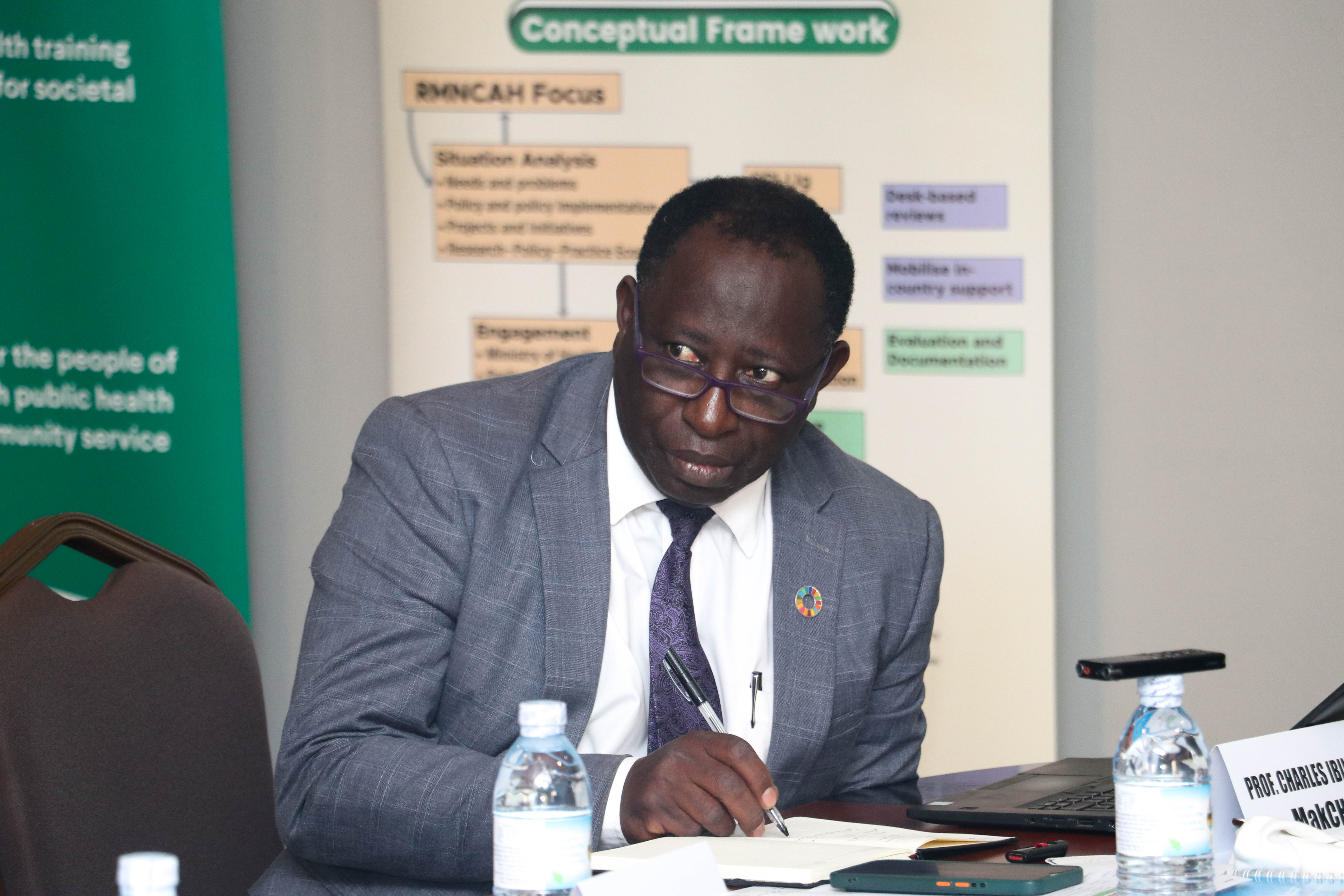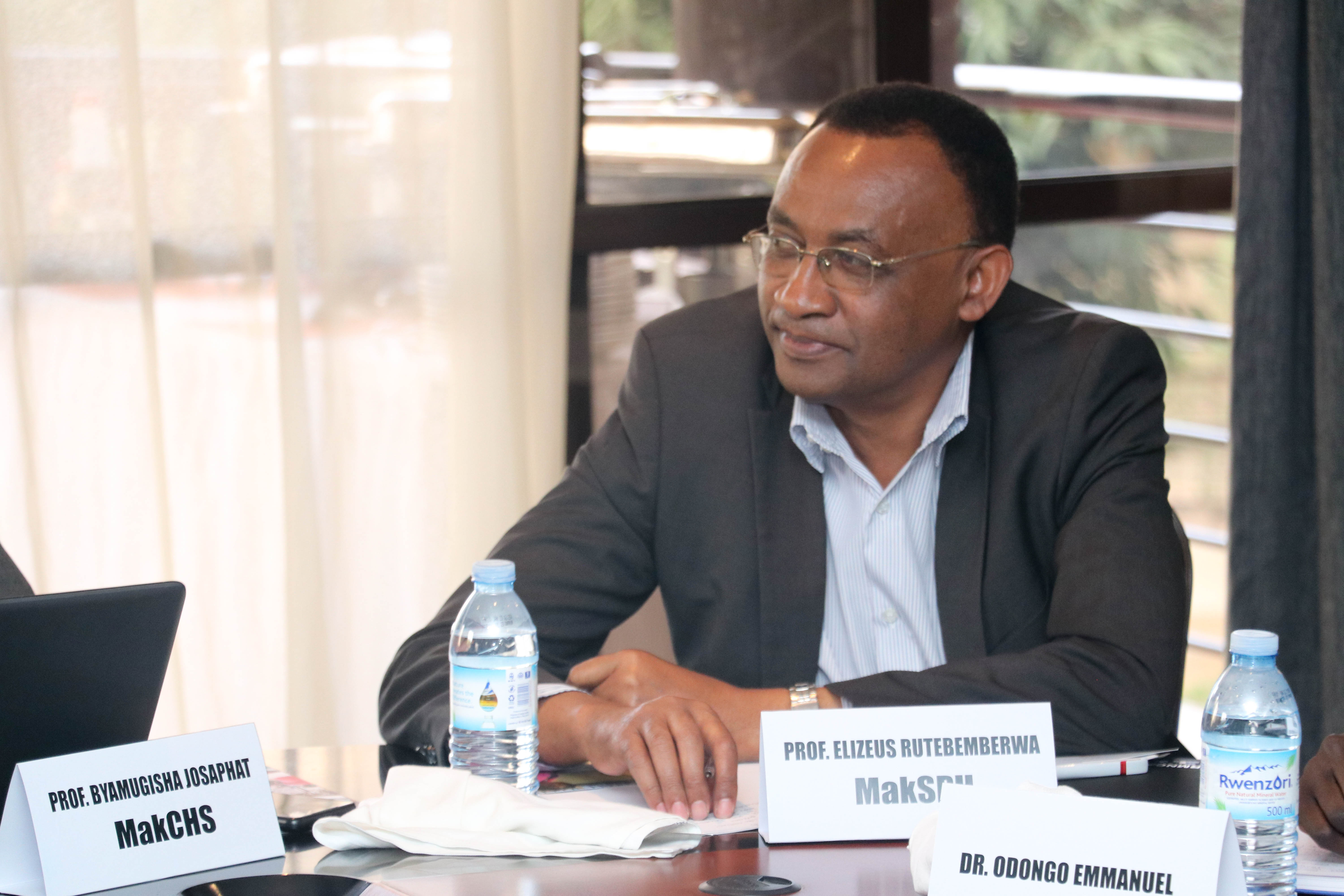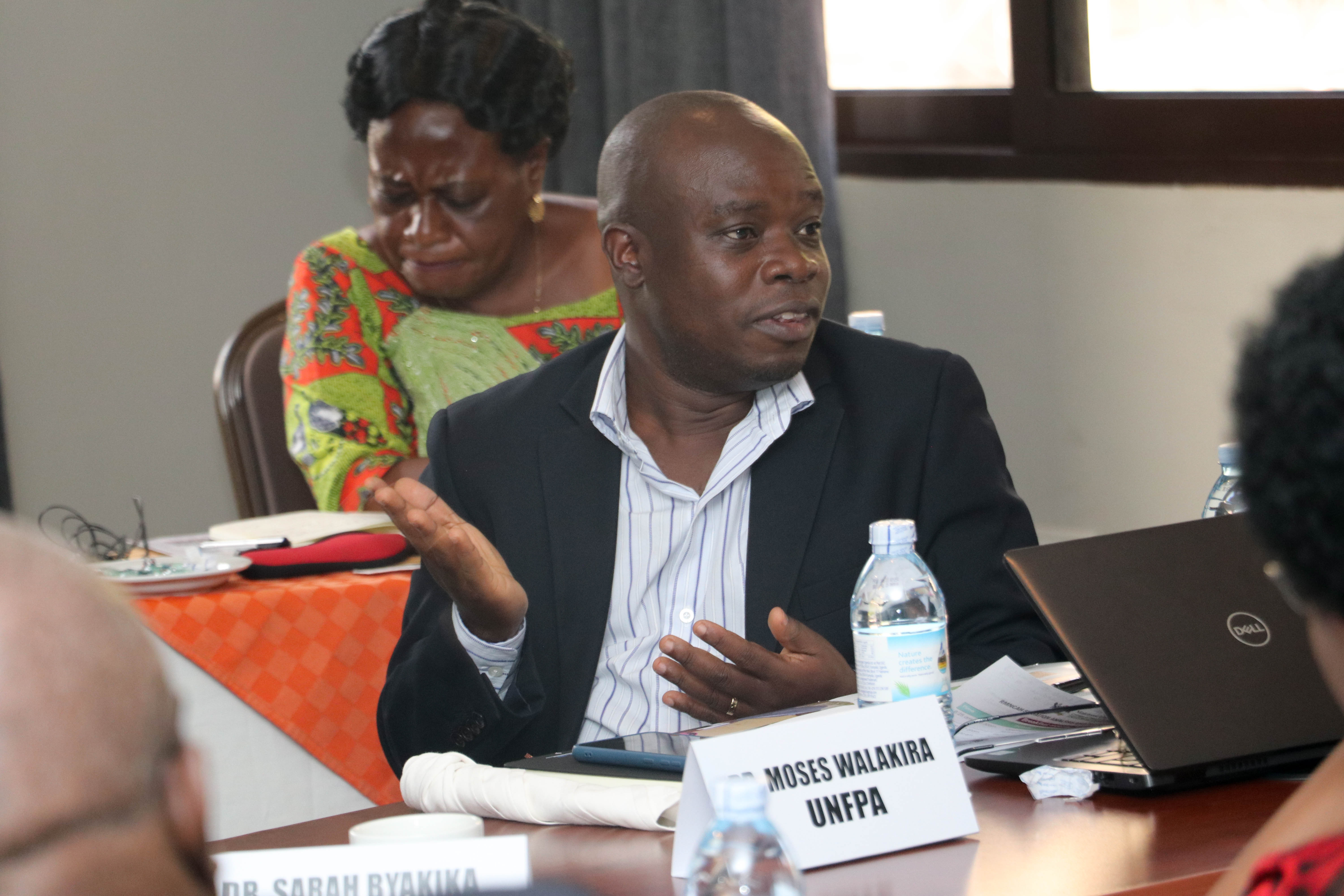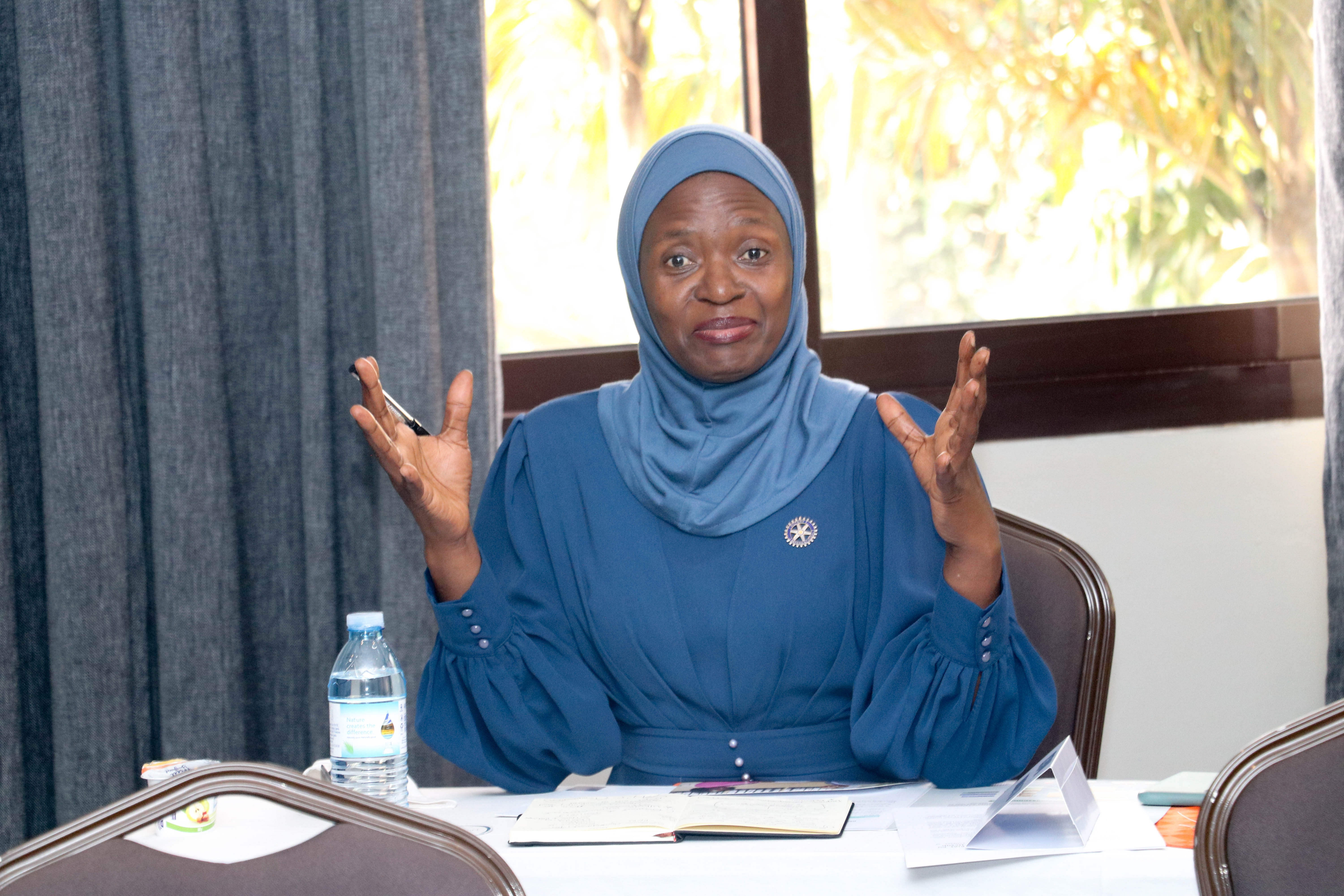
Uganda has made notable progress in increasing coverage of Reproductive, Maternal, Newborn, Child, and Adolescent Health (RMNCAH) services over the past two decades, but overall progress remains uneven due to inadequate investment and funding for health, fragmented and disorganized healthcare systems, gaps in evidence-based policy, and weaknesses in policy implementation.
In an effort to catalyze policy improvement in Africa, the International Development Research Centre (IDRC) of Canada and the Malaysia-based United Nations University International Institute of Global Health (UNU-IIGH) have agreed to co-fund a program of work aimed at promoting Maternal, Newborn, Sexual and Reproductive Health (MNSRH) policy improvement and development in five African countries, including Uganda.
On Wednesday 18th January 2022, a partner engagement meeting was held in Kampala to conduct a situational analysis of the Reproductive, Maternal, Newborn, Child, and Adolescent Health (RMNCAH) services in Uganda and discuss challenges in policy formulation, implementation, and evaluation.
In his opening remarks, Prof. Charles Ibingira highlighted the challenges in policy formulation, implementation, and evaluation in RMNCAH services.
“Our targeted outputs are; updated/improved versions of existing policies, or new policies, an improved MNSRH research-policy-practice system (including better coordination and communication between commissioners, producers, and users of research), case studies of catalyzing policy improvement in Africa – CPIA model, and two structured courses for a cohort of young professionals in policy analysis and implementation research,” Prof. Ibingira highlighted.

The session was moderated by Professor Elizeus Rutebemberwa, the Deputy Dean, School of Public Health assisted by Dr. Josaphat Byamugisha, of Obstetrics & Gynecology and the Director, Makerere University Health Services with assistance from Professor Lynn Atuyambe.
According to Dr. Sarah Byakika, the Commissioner Health Services Planning, Financing, and Policy at the Ministry of Health, there is a need to evaluate program indicators on a regular basis.
“The challenge is that when it comes to monitoring and evaluation, and following up on why we are not achieving targets, there is a big gap. We produce annual sector performance reports but don’t give time to reviewing this performance. People always just go back home and wait for the next report,” remarked Byakika.
Further adding; “We are good at designing policies but are struggling when it comes to learning from them.”

Dr. Moses Walakira, the family planning program specialist at the United Nations Population Fund (UNFPA) decried the absence of a joint multi-sectoral action plan when it comes to addressing RMNCAH issues.
“How do we work collaboratively to address structural barriers? Who are the gatekeepers? And how do we target them together? Harmonization of perspectives and commitments at different levels is so important, otherwise, we shall remain fragmented in our policy implementation,” said Dr. Walakira.

Ms. Friday Madinah, a Senior Youth Officer from the Ministry of Gender, Labour and Social Development, advises that when dealing with issues related to young people, women, children, and people with disabilities, the Ministry of Health should involve the Ministry of Gender, Labour, and Social Development, as they also have the necessary linkages and structures to assist in implementing these policies.

“When issues of young people, women, children and even those of people with disabilities are being handled, it is mostly the Ministry of Health taking charge yet we at the Ministry of Gender, Labour and Social Development also have the linkages and structures to help in implementing these policies. Please bring us on board, and make use of our competencies in these areas,” says Madinah.
Dr. Olive Sentumbwe, Family Health, and Population Adviser, at the World Health Organization (WHO), also underscores the need for a platform for the RMNCAH team to utilize in discussions with the other key players in regard to the kind of support they can provide.

“The platform is crucial when it comes to accountability; following up/asking other sectors, and Ministries whether our policies and action points are being implemented. We also need different platforms at the different levels of government so there is an understanding of policies and their implementation processes by the different beneficiaries,” she said.
According to Dr. Jessica Nsungwa, the Commissioner for Maternal and Child Health at the Ministry of Health of Uganda, accountability ought to be mutual in order for policies to be successful.
“Government should be accountable to its people, but the people also need to be accountable to the government. For example, we bought a bunch of COVID-19 vaccines using government money but people refused to come for them and some of those doses ended up expiring,” Dr. Nsungwa attests.

The Minister of Health Dr. Jane Ruth Aceng reported in June 2022 that 2.6 million doses of the COVID-19 vaccine expired due to a lack of interest and misinformation. This highlights the need to improve cooperation and coordination between the public, private sectors, and community to improve access to maternal, newborn, sexual, and reproductive health.

Hon. Dr. Bhoka Didi George, a public health specialist, area MP for Obongi County in Obongi District, and a member of the Committee on Health in Parliament reminded the team that the current public health law in Uganda is obsolete, dating back to the 1930s.
“From a legal and regulatory framework point of view, there is a lot of room for improvement. What we have is a national policy, not a law. Therefore, we cannot hold the government accountable in case they fail to deliver on Maternal, Newborn, Sexual, and Reproductive Health for example. We need an enabling legal and regulatory framework,” Hon. Dr. Bhoka.

Dr. Richard Mugahi Adyeeri, the Assistant Commissioner Ministry of Health in charge of Reproductive Health advises the localization of policies to suit Uganda’s population needs at the implementation of RMNCAH services.
“One district with five million people, but only one DHO [District Health Officer] can’t have the same issues as a district with only 60,000 people for example. Let us have policies that are not only culturally, but also socially sound,” Dr. Mugahi said.

Prof. Ibingira stresses that the engagement was quite central to the responsibility of individual stakeholders, which is proper service delivery for the health improvement of Ugandans.
“You have given us a lot of information on the issues we are tasked with, regarding policy formulation and implementation. We are now going to do the analysis by looking at the different existing policies so we can come up with strategies instrumental to accelerating policy improvement. We hope a lot is going to change, and that other countries will learn from us. Thank you very much,” Prof. Ibingira.
The CPIA partnership operates in five countries and is coordinated by the UNU-IIGH, which leads to the conceptualization and evaluation of the program's model. Makerere University leads the implementation of the CPIA model and operational plan in Uganda, and the project aims to benefit staff and students through visiting fellowships, internships, and Ph.D. research opportunities.
By Samantha Agasha and Davidson Ndyabahika

